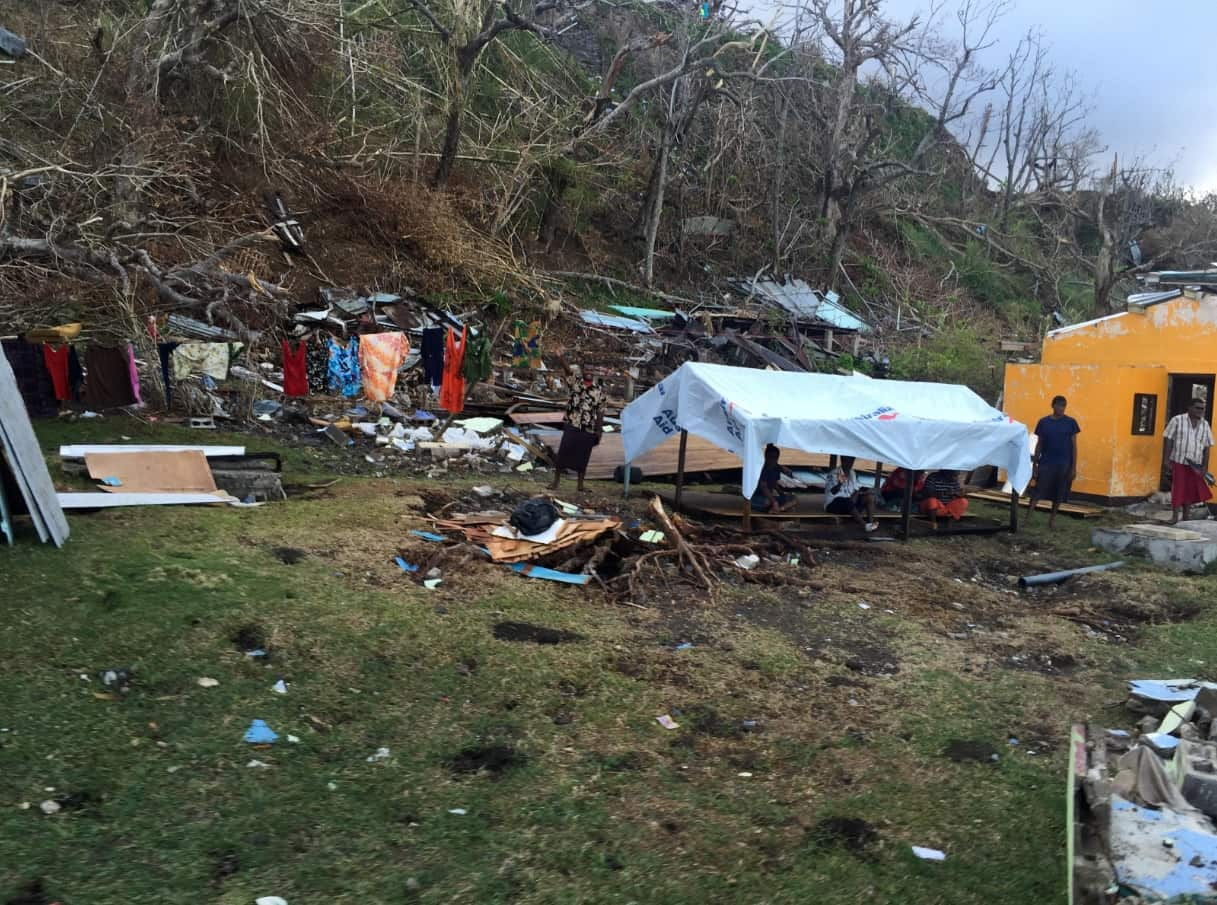The country is still recovering from Cyclone Winston’s massive social and economic hit, which left 44 dead and a damage bill of more than A$2.5 billion.
A multi-faith service in the capital Suva commemorated the dead, the survivors and the recovery efforts that were ongoing.
“Cyclone Winston bore down on our islands with unprecedented fury. No Fijian who experienced the impact will ever forget the experience,” Fijian President Maj-Gen (ret’d) Jioji Konrote.
“It was the biggest cyclone ever to make landfall in the Southern Hemisphere.
“It was one of the worst disasters, perhaps the worst, ever inflicted on our people.”

The dead were remembered by their relatives, political leaders, foreign dignitaries and the hundreds of Fijians who attended the service, which include a minute's silence.
Winds up to 300km/h devastated many remote communities as Winston meandered through the island group, before heading for Tonga and returning to strike Fiji.
About 40 per cent of the population, 350,000 people were adversely affected, including more than 60,000 in evacuation centres and 40,000 homes were damaged.
Major population, tourism and industrial centres were luckily spared, otherwise the damage bill would have been much higher.
Fiji blamed climate change for the disaster and was named president of the COP23 global climate talks in Bonn, Germany, in November.
“As president I make the following undertaking to you, Fiji intends to do whatever is in its power to persuade the global community about the root cause of extreme weather events such as Winston, that are causing so pain for our people and other vulnerable nations around the world,” President Konrote said.
“We must get the community of nations to continue reducing carbon emissions, this is a fight we must win - our entire way of life is at stake.
A year on from Cyclone Winston, several thousand people were estimated to be living in tents.
“It’s a wonderful reflection that in our hour of need, those who suffered were not alone, as ships and relief supplies came from near and far, HMAS Canberra from Australia, HMNZS Canterbury from New Zealand, and other naval vessels from New Caledonia and Tonga,” President Konrote said.
“Planes from China, India, United Arab Emirates and elsewhere.”
Australia, the Pacific's biggest donor, sent military personnel and $35 million in financial assistance, and continued to provide ongoing aid.

